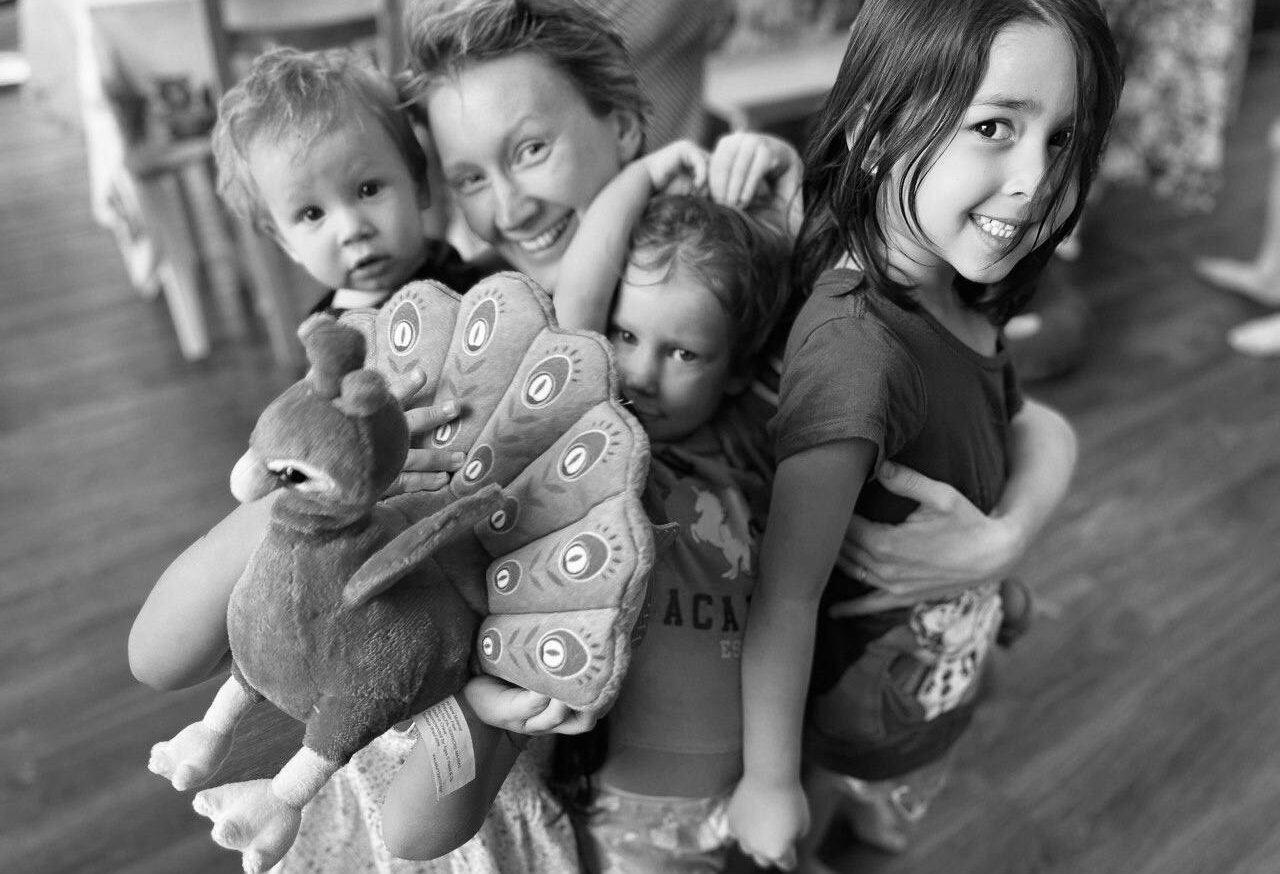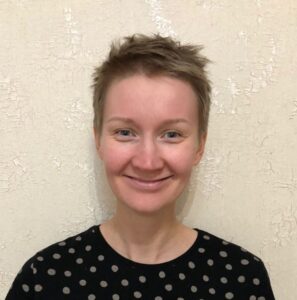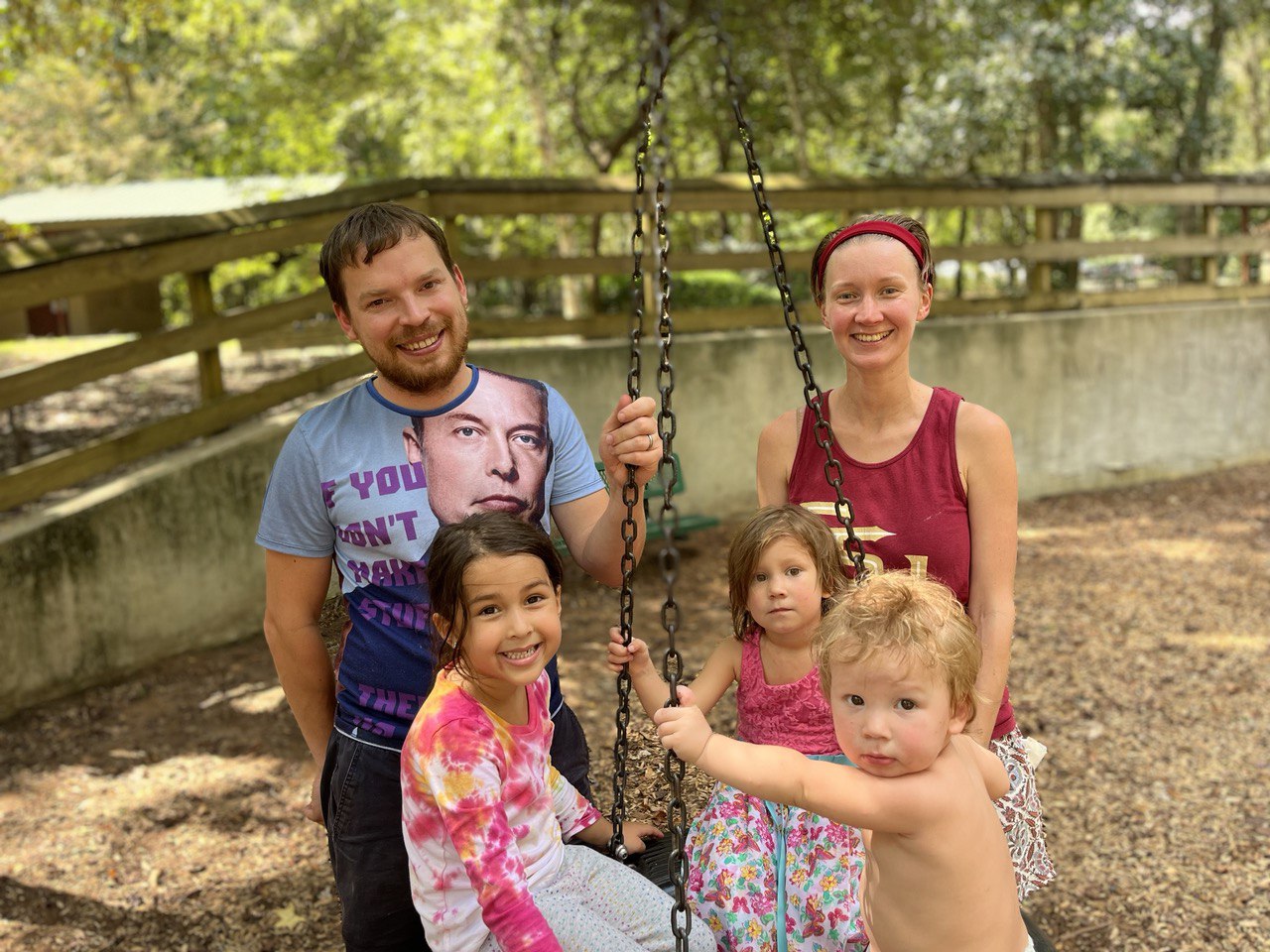
The Juggling Act: How to Balance Being a Mom, Entrepreneur and Ph.D. Student
At age 32, Elena Brandt emigrated from Russia to Tallahassee, Florida, has a husband and three children, is a Ph.D. student and instructor at Florida State University (FSU) and CEO of the research platform Besample. Vivid Minds spoke with Elena about how she manages her busy life as a mother, student, and founder.

Elena Brandt
I have three kids, and my husband and I are incredibly busy, so our most precious resource is time. If you ask me at any given moment if I have enough time, I’ll tell you I do not. However, motherhood taught me that I have much more capacity than I initially thought because I was forced to let go of my perfectionist tendencies.
Warren Buffet has his famous “5/25” rule, and becoming a parent while keeping a career and pursuing a Ph.D. made me realize the value of it. He says to write down a list of your top 25 goals and circle the five most important ones. Then, Buffet says, you have to let go of the remaining 20, as they are likely the ones sidetracking you from your priorities. It’s a tough but necessary exercise if you want to achieve something.
Becoming parents actually helped us learn how to use our time: We even have our own system we’ve dubbed “fridge capitalism.”
Fridge Capitalism
There’s a concept in evolutionary psychology called free riding: When people cooperate, there’s usually a time/effort/resource imbalance where the less resistant group member does a disproportionate amount of work. The same applies to couples. Usually, it’s women who carry the brunt of kid and household chores, but, in our case, my husband was doing far more because I was so wrapped up in my work, schooling and teaching duties.
This made things difficult for both of us, so we started tracking how many hours we spent with the kids. We did tracking on our fridge with stickers and markers, hence the name. In our system, one hour is the currency. So, if Mike spends an hour with our kids, I owe him an hour in the future. Since we have three kids at different ages, and the younger ones are more difficult to deal with, we incorporate coefficients into our calculations (e.g., an hour with our youngest might count for 1.5 hours of “currency”).
It’s funny, too: we’ve started using the system for other things. For example, I “gave” my husband 36 credits for his birthday, and we always have the option to “pay” each other with credits for going above and beyond, like helping with work or letting the other parent sleep in.
This might sound strange or unfeeling, but we view it like paying for daycare or a babysitter. It’s not about who spends more time with our kids. It’s just a way for us to ensure we’re parenting fairly, giving each other breaks and giving our kids undivided attention despite our busy lives. It also forces us to unplug and be present with our family, which is excellent for mental health and creativity. I can’t tell you how often a problem in another area of my life suddenly became clear or resolved because I stepped away from my phone.
We’ve used this system for a bit more than a year now, and it has been an enormous help in maintaining some work-life balance. It has also taught me to think about the value of time differently, making me more effective as a founder.

Elena Brandt with her kids and husband, Mike in Tallahassee, Florida
From Tech Worker to SciTech Startup Founder
Before my oldest was born, I prided myself on being a “hard worker” – always putting in extra time and long hours. My first daughter was born when I worked for Yandex, a large tech company, where most people worked their butts off day and night. All of a sudden, it wasn’t possible for me to keep doing that. While my coworkers were staying around the clock, I was leaving at 6 p.m. because she was waiting for me. I struggled with this for a while because I felt I wasn’t working hard enough.
However, I learned an important lesson: Being a great worker isn’t about putting in tons of time; it’s about nailing the things that really matter and getting them done. Turned out, so many things that may seem necessary (like someone asked you to do them or your inner perfectionist begs for them) are not really critical and can be let go of. I wouldn’t have known that if I hadn’t been forced to limit my time, but because I was, it actually gave me perspective and made me more efficient in all areas of life. It also helped me understand how to prioritize and delegate – critical skills for a successful founder.
I moved to Florida with my husband in 2018 and decided to pursue a social psychology degree while working for a tech company, Toloka AI. This intersection of doing behavioral research for my Ph.D. and studying people who work on data labeling at Toloka later inspired the idea for my own company, Besample.
There is a famous article with research from University of British Columbia pointing out that 96% of behavioral studies were done on Western subjects, a group that is described by the acronym WEIRD (Western, Educated, Industrialized, Rich, and Democratic), but the findings didn’t necessarily apply to other countries and cultures.
A great example here is women’s ability in STEM. For decades, researchers were finding that women have lower scores in math than men. They routinely attributed this to sex differences at birth: women, they thought, were just worse at math by nature. Turned out, they were basing this conclusion purely on American data. When researchers went cross-cultural, they quickly found out that it’s simply not true: in many societies across the globe, women scored at least as high as men, and often even higher. Gender differences, scientists concluded, were most closely related to the opportunities in studying math that society gives to girls and women – not their innate ability.
Studying humans around the world, not just Americans, is crucial for behavioral, cognitive, and social sciences. The United States is only a narrow sample of humanity, and arguably its least representative one. As long as research informs policies and high-level decisions of large companies or even nations, it is dangerous when science is based on unrepresentative data.
When I worked at Toloka, I’ve admired their effort to push for global representativeness in AI. I thought the same was very needed in the scientific community: researchers would love to go cross-cultural, they were just lacking a solution to easily access more representative samples of the global community for better, more accurate research. I also realized that if anyone had the unique intersection of knowledge in tech and behavioral research needed to create such a solution, it was me.
There was one day when our kids were watching “Moana.” I had watched it with them a million times. But for whatever reason, that one time, when I heard Moana sing her famous “How far I’ll go,” I started crying. The song suddenly resonated with my inner state. I realized there is a big problem, and I’m the only one who sees how to solve it. That’s where Disney movies really have an impact on us: the moment Moana sailed off into the unknown and dangerous ocean (by the way, now knowing how to sail), I knew I’m on a mission, and I cannot wait: I have to take a leap of faith.
Working Toward Lasting Global Impact
Many think of entrepreneurs as people who start companies because they want to make money. In fact, entrepreneurship is one of the hardest ways to make money, I think. Most of us are people who like building things and finding problems we believe we can solve.
We all know the risks: 90% of companies fail. So do 50% of marriages, but nobody focuses on that, right? Of course not; otherwise, nobody would go for it.
People don’t start companies or get married because they’re stupid; they do it because it makes them happy, and they can have fun with it, even though it requires lots of time and work. Honestly, it’s irrational to be an entrepreneur in most cases, but we still do it.
I left Toloka in late 2022 to start my own company, Besample. At the beginning, I had a great cofounder (now the COO), a clear vision, and a bit of money I had saved. A few months later, we launched a zero version of the product, started getting a lot of interest (and some revenue) from researchers, found a CTO who became a cofounder working from Israel, and gathered a team of 7 believers who help us build analytic, backend development, and customer success processes. Toloka became our business partner, too: they totally bought in on the mission of bringing global diversity to human sciences, it was just that social sciences were not their focus, so they were happy to have an external company helping to expose their crowd to research projects. Along with other crowdsourcing platforms and our own respondent base, we’re now providing scientists with immediate and affordable access to research participants in 42 countries of Africa, Asia, Latin America, and Eastern Europe. Scientists from top schools, like Yale and Duke, have already come along to try Besample – most said they loved it! One of them even invested a pretty large check during our family and friends round.
Currently, I’m spending four days a week focused on developing Besample, one day teaching at FSU and at least one full day for my research work. On a weekday, I wake up around seven thirty and start the day by taking kids to school: it usually turns into a family walk around the neighborhood. I go to bed between eleven and midnight after reading to kids, then indulging myself with some news and social media. Between “fridge capitalism,” bonding with kids and working with a global team in “time zone shifts,” my life is more hectic but also more happy and productive than ever.
| Prepared for Vivid Minds by | ||
|
|